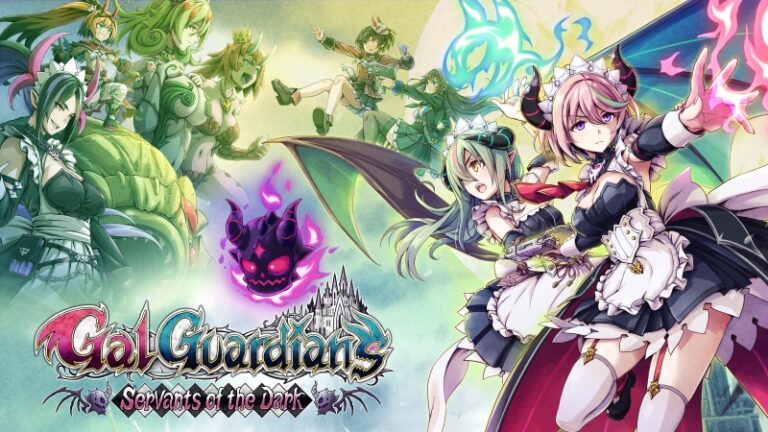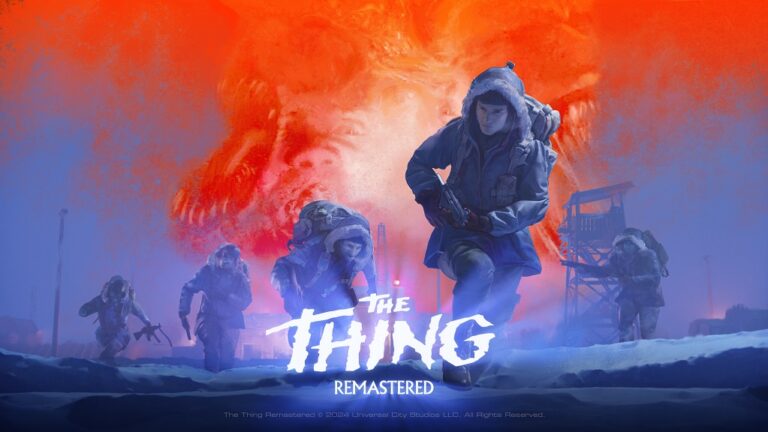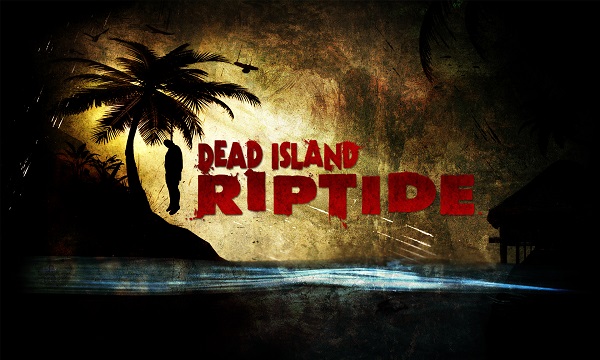
Zombies are not going anywhere. Now that we’ve got that out of the way, let’s talk about Techland’s second entry in their zombie island resort series Dead Island. Dead Island Riptide is not a sequel by traditional means and publisher Deep Silver has made this fact abundantly clear. Techland may be reserving true sequel status for a game that completely revamps the game’s engine and features. Riptide is, for the most part, more of what the first game was but with some much needed tweaks and adjustments. It may not be a groundbreaking follow up to a game that I found marred with problems–and potential– but it thankfully gets the job done.
Regardless of the game’s “not sequel” status, the story picks up right after the events of the first game. The four survivors of the Banoi island outbreak had reached refuge and safety only to be cast back onto land because of a storm. The game takes place on the neighboring island Palanai. The tropical storm that resulted in the heroes being sent back to the zombie infested islands has also caused massive flooding on land, setting up a slightly different experience for players that will introduce nautical travel between villages on the island. Cars can still be used to traverse the starting portion of the island, but I found the road to be a less than optimal path to use for travel—boats allowed me to get closer to my waypoint. Boats are fun to drive but they’re easily accessible to zombie attacks. When attacked, a simple QTE occurs to knock them back. It’s a mild distraction but the real pleasure comes from running zombies over.
The first Dead Island had a pretty forgettable story, in both terms of what actually happened and the way the narrative was told. Characters felt insignificant, two dimensional, and dispassionate. The storytelling was also too messy for my preference. Thankfully, Riptide actually steps this up a notch—not by much, but to a point where I could actually care about what was happening. A lot of dialogue is given by the chosen playable characters during gameplay and radio calls, which gives them some semblance of a personality outside of cutscenes. Riptide‘s characters are still pretty two dimensional, but on palatable level. The first game limited a character’s thoughts and feelings to a series of fish eyed people (a facial animation issue where characters eyes are not straight) having an exchange within a cutscene. Within Riptide, I appreciated hearing more from my character and my co-op partner’s character when they made comments about story developments and the environment.
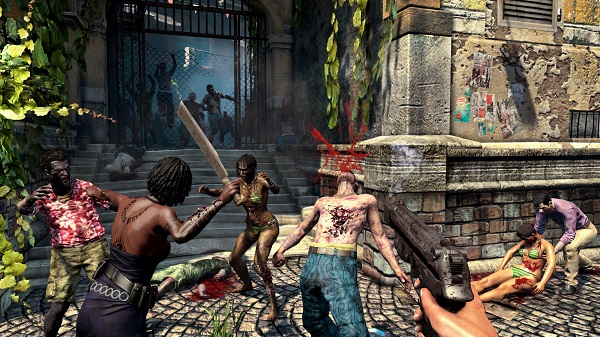
Something I would have liked to have seen in Riptide was a better balance of drama and comedy. Dead Island Riptide has its share of chuckle moments (intentional or not), and more of this would have been appreciated throughout the game; it’s as if there was intent to add some levity to the story but such a small amount that it’s hard to determine if it was done on purpose. There’s one moment where Sam B, one of the playable characters, who is a rapper, has one of his songs played at a concert stage so to distract zombies away from a base. The lyrics are absurd and hilarious and this scene came off as pretty damn funny against the game’s serious tone. This is a small observation of mine but it was confusing, since I was left struggling with identifying the intentions of the writers.
Being an FPS-RPG, Riptide has more to offer than the normal zombie game. Each character has their own skills, perks, and specialties. Playing the game online allows for four out of five characters to work together and slaughter tropical zombies. Bladed weapons, blunt weapons, thrown weapons, hand to hand, and gun specialties are attributed to the five characters, respectively. Of course this doesn’t limit what you can use, it’s just what your character will excel with. Leveling up your character unlocks skill points, which can be used to increase specific means of damage, extend Fury Mode (Fury Mode allows for extra damage in a limited amount of time), and the effectiveness of some skills. Among both melee and firearms is the ability to kick enemies back. The kick button can also be used to execute a curb stomp attack on downed zombies. Lastly, unique means of attack can also be unlocked, such as melee attacks from above and running heavy attacks.
As a first person game the first Dead Island felt sluggish. Riptide simply feels more comfortable to play. The same can be said to its revamped menu system—something that aided to my disorientation and dissatisfaction in the first game; response times are improved so important things can be looked at more quickly. Melee combat can still get a bit chaotic and uncoordinated in Riptide, but I sense a slight enough improvement that I enjoyed it more than I did in the first game.
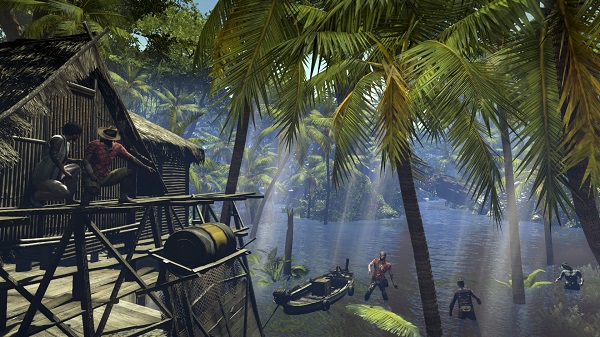
Weapon variety ranges from the fairly typical survivalist melee weapon types to ridiculous and nonsensically crafted weapons: swords with batteries attached for a shock effect, knives wrapped in barbwire, poisonous clubs, etc. Some of these don’t make any sense, but there’s a real treat in finding a new weapon, upgrading it, and then modding it with random loot found scattered around the environment.
When it comes to enemy variety in Riptide, I was pretty pleased with the offerings. There’s several variants of the typical run of the mill zombie and then there are stronger mutations. Among these mutations are enemy types that can either explode, spit vomit, tackle, slam, disorient via screaming, or throw nasty pustules. While the game’s graphical quality doesn’t exactly make the enemy types look amazing, their designs are enjoyable and disturbing.
Visually, Riptide isn’t a stunning game to look at but it does surprise when faced with interior levels. It’s both odd and ironic that I found the most enjoyment out of this game in smaller, more linear environments such as the inside of a lab, the town, and the several facilities that the player ends up visiting. These interior portions actually contain some of the game’s best artistic design as well. Foreboding hallways with bleak textures and lighting coupled with the game’s surprisingly awesome 80’s horror-inspired soundtrack makes these environments a treat to explore. The sandy beaches and flooded villages of the game’s locale are actually my least favorite environments in the game; the island resort from the first game is far more varied in design and more accessible to travel by cars. Once the characters move out of their first few strongholds, the environments become much more enjoyable. On many occasions, I actually preferred playing alone, just so I could soak up some of the environments. But that’s probably best left to a character of a significantly higher level than what you start with. Otherwise, numerous deaths will occur.
Introduced to Riptide is a stronghold mechanic that accompanies acquiring a new camp based on story progression. As the player moves throughout the story he or she will move fellow survivors into new areas to hold out. Fortification of a new stronghold boils down to the simple act of applying fences to several thresholds on a base, as well as setting mines, placing turrets, and killing a whole bunch of zombie swarms. The mechanic is not complex but it does add some variety to the mission structure, which remains largely unchanged from the first game.
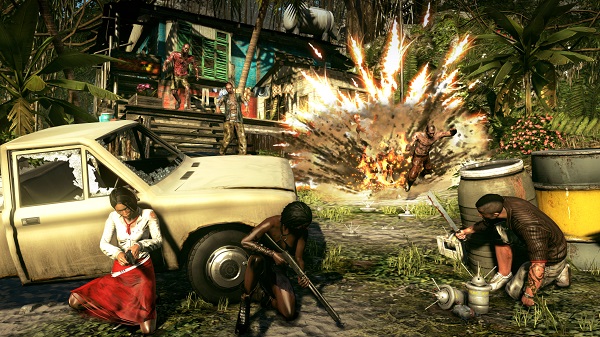
Fetch quests are back, and while these can be considered a boring chore—because at times they were in the first game–the general amount of fun that comes from killing zombies and acquiring new weapons prevented me from feeling like these were tedious. Missions come from both primary characters and side characters. When playing alone or with less than 4 online partners, missions from the playable characters can be accomplished to raise their skills. I’m not sure how much of a benefit this carries in the long run, but it’s worth mentioning that missions can be accepted from three venues.
Dead Island Riptide may not be a significant step up from the first game, but its tweaks and improvements hit the right marks and enable it to be a more enjoyable experience. The narrative is nothing spectacular and the game’s engine still feels dated and at times clunky, but a good amount of fun can be extracted from this follow up release. If you were hard pressed to find any redeeming qualities about the first Dead Island, then Riptide‘s bloody shores will probably not be enough to entice your return. At times, Riptide can feel like a minor upgrade to the first game that doesn’t justify a $50 price tag, but if you saw promising features that just needed slight refinement, then you might be in luck.
 (6.5 / 10)
(6.5 / 10)
Above Average
 (6.5 / 10)
(6.5 / 10)
